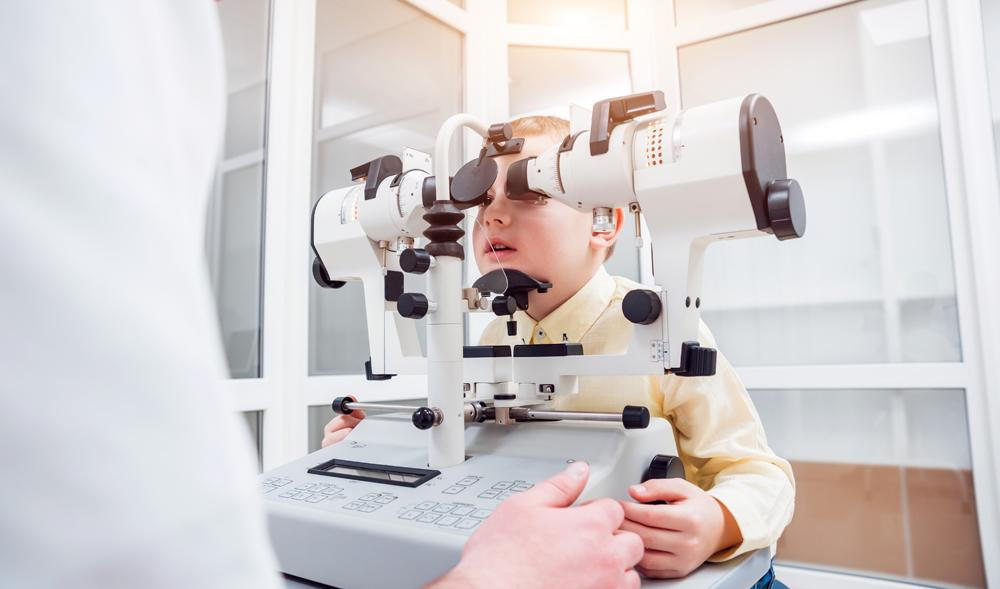Comprehensive Retina Service Near Me: Advanced Eye Healthcare
Comprehensive Retina Service Near Me: Advanced Eye Healthcare
Blog Article
Recognizing the Numerous Eye Issues Dealt With by Specialized Eye Treatment Professionals
In the world of eye care, specialized experts play an important function in detecting and treating a broad array of eye problems. As we embark on this exploration of the different eye conditions resolved by specialized eye treatment specialists, it becomes noticeable that the detailed web of eye wellness holds a myriad of fascinating understandings waiting to be revealed.
Typical Refractive Mistakes
Refractive mistakes are typical aesthetic problems created by an imperfection in the eye's capability to correctly focus light, resulting in blurred vision. Astigmatism is defined by an irregularly designed cornea, resulting in altered or blurred vision at all ranges. Presbyopia is an age-related problem where the lens sheds its versatility, making it tough to focus on close objects.
These refractive mistakes can be corrected through different methods, including glasses, call lenses, or refractive surgery. Eye care specialists play an important function in diagnosing and managing refractive errors to assist individuals accomplish clearer vision and boost their high quality of life.
Age-Related Eye Problems
One of the most widespread age-related eye conditions is age-related macular deterioration (AMD), a disease that triggers main vision loss and can make activities like analysis and driving challenging. Cataracts, an additional usual problem among older individuals, cause clouding of the eye's all-natural lens, leading to blurred vision. Normal eye exams with specialized eye care professionals are crucial for very early detection and management of these age-related eye conditions to preserve vision and maintain eye health as individuals grow older.
Vision-Threatening Conditions
Vision-threatening conditions include a series of major ocular conditions that have the potential to substantially impact an individual's vision and total visual feature. These diseases posture a threat of permanent vision loss otherwise quickly identified and treated by specialized eye care professionals. Some usual vision-threatening diseases include glaucoma, diabetic retinopathy, age-related macular degeneration (AMD), and retinal detachment.
Glaucoma is a team of eye problems that harm the optic nerve, commonly due to high intraocular pressure, leading to outer vision loss and potential loss of sight if left untreated. AMD is a progressive problem impacting the macula, leading to central vision loss.
Early detection, normal eye tests, and prompt treatment are critical in managing vision-threatening conditions to protect eyesight and maintain lifestyle. Specialized eye treatment professionals play a vital role in diagnosing, treating, and handling these problems to stop irreversible vision loss.

Corneal Conditions
Corneal conditions encompass a spectrum of conditions that influence the transparent front part of the eye, known as the cornea. These problems can bring about pain, visual disturbances, and in extreme instances, vision loss. One common corneal disorder is keratoconus, where the cornea thins and protrudes outward into a cone form, causing astigmatism and obscured vision. Corneal dystrophies, such as Fuchs' dystrophy, cause progressive vision loss because of uncommon deposits in the cornea. Corneal abrasions, commonly triggered by injury or international things, can bring about discomfort, inflammation, and level of sensitivity to light. Furthermore, infections like keratitis can irritate the cornea, potentially leading to scarring and vision problems if not without delay dealt with. Treatment for corneal conditions varies relying on the particular problem however may consist of medicines, contact lenses, or in serious cases, corneal transplants. Normal eye tests are essential for very early discovery and administration of corneal conditions to maintain vision and eye health.
Neurological Eye Problems
Neurological eye conditions involve disorders that affect the link in between the eyes and the brain, affecting more aesthetic handling and general more info here eye feature. These problems can materialize in numerous methods, influencing vision, eye movements, and even the control between the eyes. One typical neurological eye problem is optic neuritis, defined by inflammation of the optic nerve bring about vision loss, shade desaturation, and discomfort with eye movement.
One more considerable condition is nystagmus, where the eyes make repetitive, uncontrolled motions, affecting aesthetic acuity and deepness assumption. In addition, problems like amblyopia, commonly described as "lazy eye," result from abnormal visual advancement in early childhood years, leading to lowered vision in one eye.
Neurological eye conditions require specialized care from experts like neuro-ophthalmologists that have proficiency in both neurology and ophthalmology. Medical diagnosis typically entails a comprehensive eye evaluation, imaging researches, and partnership with specialists to resolve the underlying neurological problems impacting the aesthetic system. Therapy methods can include drug, vision treatment, or in severe cases, surgical treatments to manage these intricate problems efficiently.

Conclusion
To conclude, specialized eye care professionals treat a large range of eye conditions, including usual refractive errors, age-related eye problems, vision-threatening illness, corneal conditions, and neurological eye problems - refractive surgeries in al. By recognizing these numerous conditions and seeking appropriate treatment from eye treatment professionals, individuals can preserve optimal eye health and wellness and vision. It is necessary to prioritize routine eye evaluations and follow suggested therapy strategies try this website to maintain and protect one's vision for the future
Report this page